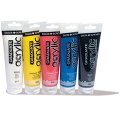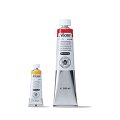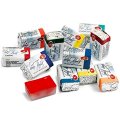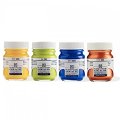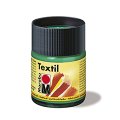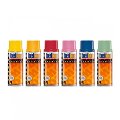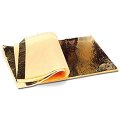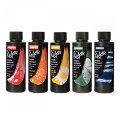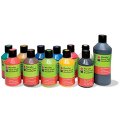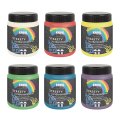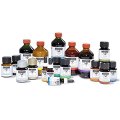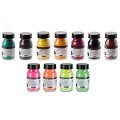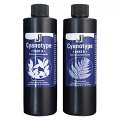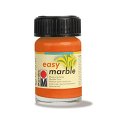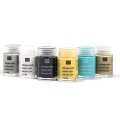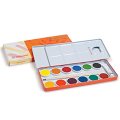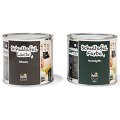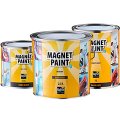Pigments
Informationen über Pigmente
Pigments (Latin “pigmentum”: paint) are colour-giving substances that are insoluble in their vehicle (lacquer, paint). Pigments are primarily used in picture painting. The colouring capability of a pigment depends on its chemical composition, on its crystalline structure, on the size of the particles and on their inner surfaces.
They are divided into inorganic and organic groups that can either be synthetically or naturally produced.
The natural inorganic pigment group includes earth (clay) and minerals (ochre, umbra, … or, alternatively iron oxide, cinnabar, …) that require little or no preliminary preparation (drying, milling, etc.). Inorganic synthetic pigments like ultramarine can only be produced artificially (mind you, they are indeed more stable and have greater purity). Inorganic pigments derived from lead or arsenic are highly toxic, which is why they are not part of Modulor´s assortment!
Natural organic pigments are produced from either animal (e.g. purple) or plant substances (e.g. indigo). Synthetic organic pigments are subdivided according to their chemical composition; e.g., azo pigments made from oil.
